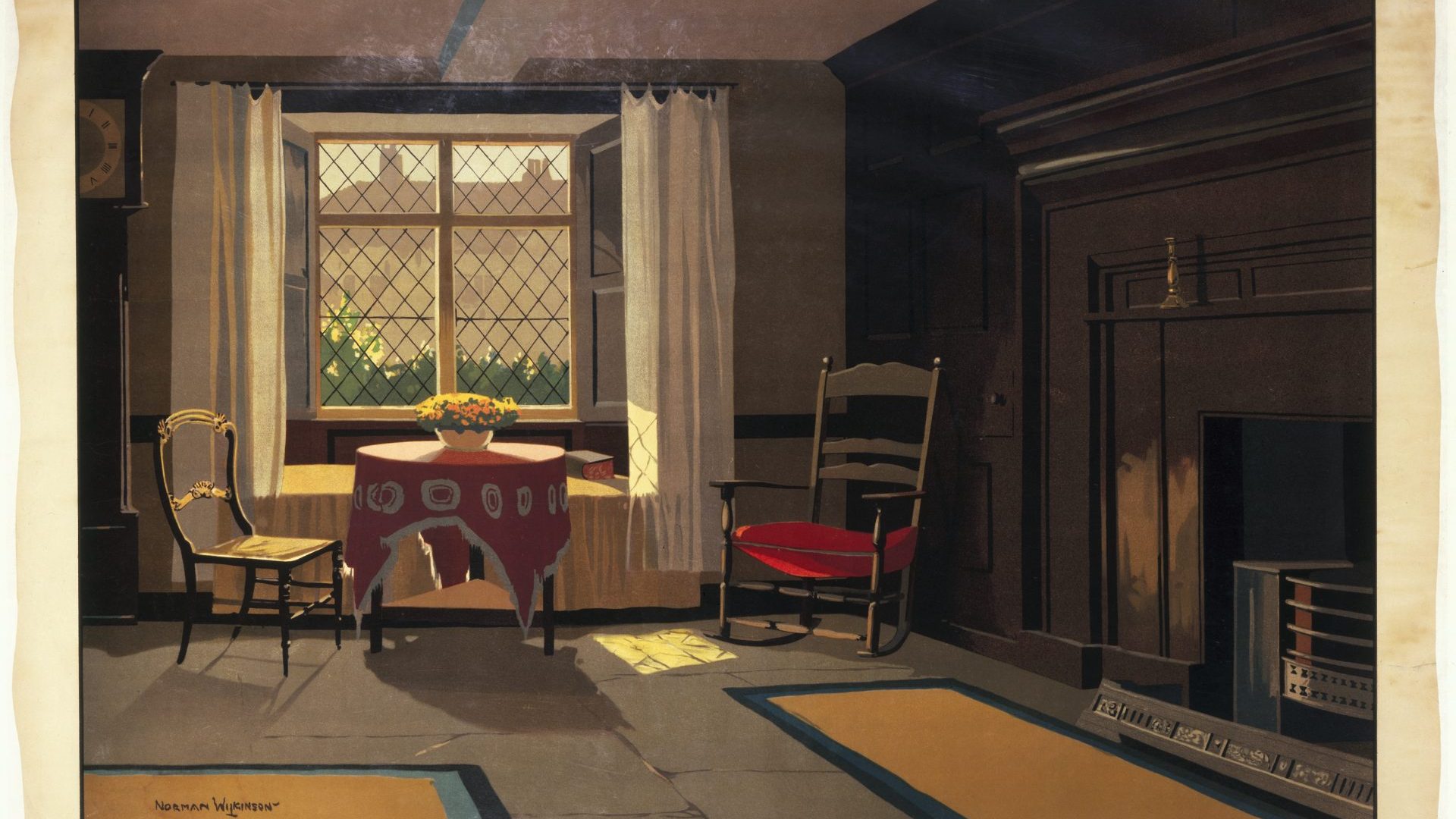In 2009, at the age of 23, Esther Rutter moved to Grasmere in the Lake District as one of 10 young people spending a year as interns at Dove Cottage, once the home of William and Dorothy Wordsworth, now a major tourist attraction and the headquarters of the Wordsworth Trust.
Rutter had not long returned from what should have been an exciting work placement in Japan, her first job after graduating in English literature. There, however, she suffered a serious mental health episode that saw her sectioned and flown back to the UK for treatment ahead of what threatened to be a long and difficult recuperation. “I had not lost just my confidence,” she writes in her memoir All Before Me: A Search for Belonging in Wordsworth’s Lake District, “but also the belief that I would ever be happy again.”
When she arrived in Grasmere, first for an interview and then to live and work, Rutter knew this was a gamble. She would be a long way from her Suffolk home, billeted with strangers and taking on a role involving significant interaction with the public. For all the advances in healthcare that have helped to remove much of the stigma once associated with mental illness, she was still uncertain how open to be about her personal circumstances, as well as being uncertain of her own ability to negotiate her way into the world of employment and social interaction so soon after Japan.
William Wordsworth was 29 years old in 1799 when he and his sister, Dorothy, moved into the cottage in the dying embers of the 18th century. It was a time of great uncertainty for the aspiring poet and philosopher, too: the previous year he had published the first version of the Lyrical Ballads, co-written with Samuel Taylor Coleridge, which had not been a success. Wordsworth was dependent on the munificence of friends and family to survive and was returning home to the region where he was born and raised.
Today the Lake District is one of the most popular tourist destinations in the UK – thanks in no small part to the legacy of the poet of Grasmere – but when the Wordsworths arrived it was a backwater, a place rarely visited.
Like Rutter, Wordsworth arrived at Grasmere with the dust of the world on his shoes; in the previous decade he had travelled through France, where he fathered a daughter, and had made an abortive attempt to establish himself as a poet and philosopher in Germany, spending a freezing winter with Dorothy in Goslar before returning to England and eventually finding his way back to the landscape that made him.
For William and Dorothy the move to Grasmere proved to be the right one. The poet was inspired by his surroundings to creative heights rarely equalled in English since, while Dorothy produced some excellent writing of her own in the form of journals and, later, travel narratives, all the while facilitating her brother’s poetic vision (one of the many things I learned from All Before Me is that William Wordsworth preferred to compose his verse in his head, usually while yomping across the Lakeland fells, relying on others – Dorothy, mainly – to transcribe his verse for him).
The question at the heart of Rutter’s book is whether the move was also the right one for its author.
I confess that when I picked up All Before Me I was more interested in what it had to say about the Wordsworths than the author’s personal circumstances. It did not take long before I reversed that standpoint entirely. Not because Rutter failed to bring the siblings to life, quite the opposite; more that I became increasingly absorbed in her narrative, how being in that particular place at that particular time would influence her psychological wellbeing and the future course of her life.
The thousands of visitors who pass through Dove Cottage each year suggest that context plays a huge part in an appreciation of literature. I say this as an enthusiastic collector of literary locations, from the graves of favourite writers to their museums or even just the places that inspired them.
I absolutely believe that my appreciation and understanding of writers I admire has been enhanced by such pilgrimages, from the Margate seaside shelter where TS Eliot composed some of The Waste Land to Manhattan’s Chelsea Hotel from where Dylan Thomas set off not gently into that good night, apparently after announcing, “I’ve had 18 straight whiskies, I think that’s the record”.
For Rutter, however, the stakes were far higher than having a bit of a moment while reading Home at Grasmere at home at Grasmere.
The Dove Cottage at which she arrived 210 years after the Wordsworth siblings serves as both a museum and an extraordinary archive of Wordsworthiana. According to Rutter, around 95% of extant manuscripts and letters by or from William and Dorothy are kept there, making it the complete literary destination for fan, casual admirer and scholar alike.
The Wordsworth Trust has looked after the property since 1890, when it was able to purchase Dove Cottage with the help of public subscription, contributors ranging from Alfred, Lord Tennyson, to an anonymous “working woman” who sent a shilling. Its first caretaker was a local woman who remembered the elderly William Wordsworth and had attended his funeral in 1850, who retired from the job at the age of 94.
Her direct descendants succeeded her until 1961, a refreshing continuity that remains in the long service of trust employees to ensure the character of the place is retained while modernisations such as the preservation of delicate items of correspondence and manuscripts are carried out. Such necessary evolution runs parallel with the preservation of the cottage in a condition the Wordsworths would recognise instantly today if they ducked through the door, removed their hats and stamped the dried mud from their boots.
Importantly, poetry remains at the heart of everything, the trust organising regular residencies and readings in Grasmere to ensure the creative flame lit there by the Wordsworths is maintained.
“Preserving physical relicts of the past is not enough to ensure that poets from two hundred years ago will not be forgotten,” Rutter writes. “For a love of poetry to survive, a living legacy of art and writing has to endure. In Grasmere, poetry is a living, breathing entity whose vital flame must be allowed to burn.”
In her year among the lakes, Rutter searches for a different but no less vital flame, one flickering weakly inside herself, the flame firing her own ruptured personal narrative.
Psychologically, we need narratives because we live inside them: not just the great, dramatic arc of history, but also our own story,” she writes. “Like the smallest doll inside a Russian matryoshka, this personal narrative is often obscured and yet it is the kernel around which we build our lives.”
The trauma she endured in Japan triggered a snuffing of that narrative flame, but Grasmere is where it begins to burn again.
“If our story doesn’t quite make sense to ourselves, we can lose sense of who we are,” she says. “Without that narrative thread, our experiences can seem random, unenriching, even frightening in their unpredictability. We risk feeling reduced to someone things happen to, rather than one who makes them happen.”
In the realm of the Wordsworths, she sets about drawing together from her surroundings the threads of her personal narrative, recovery and the legacy of the siblings who brought her there. At first, the landscape itself is alien and intimidating, the sublime hills and mountains of the Lake District the antithesis of the flatlands in which she grew up. And lurking among those hills is the fear of a regression into her mental illness.
“I became frantic with the idea that being at ease with myself would eternally elude me,” she writes. “There was a chance that this new, mad me would always be gripped by a mania that offered little respite.”
Even the vocabulary of the landscape around her is alien when she arrives, words like “fell” and “tarn” peculiar to the north-west, while escaping into the Wordsworth archives is a daunting prospect, thanks to its sheer scale. Yet she immerses herself in the history behind her and the environment around her to unlock the life ahead of her, handling original drafts of works such as the epic poem William embarked on in Germany about his childhood among the lakes and how his own experiences there helped to form his adult self.
He would end up tinkering for 40 years on the opening section alone, The Prelude, or, The Growth of a Poet’s Mind, published after the poet’s death in 1850 and arguably his masterpiece, a work identified by Rutter as the first nature memoir in which self-analysis is undertaken in the context of the landscape.
In effect, Rutter goes back to the source text for her own vital self-examination, seeking out early drafts of the poems in order to understand the youthful mindsets of the Wordsworths and their friend and colleague Samuel Taylor Coleridge when they were the same age as her.
The lives of the Wordsworths, to start with kept separate from her own story, leading to some hefty early narrative gear changes, gradually ease into the same rhythm as Rutter’s own watershed year among the poets. Having feared the loss of her own narrative, she becomes part of the Lakes’ rhythms and stories herself, scaling some of the peaks whose basic terminology had been beyond her a few months earlier, and dry-stone walling when before her arrival she had been turned down for a trainee thatcher’s position because of a complete lack of outdoor experience.
With this powerful, affecting memoir of a year immersed in the realm of arguably England’s greatest poet, Rutter has distilled perfectly a combination of landscape, history and personal memoir into an extraordinary book. Skilfully structured and benefiting greatly from the hindsight of the intervening years, All Before Me had this Wordsworth fan flipping through the Wordsworth sections to seek out the next step in Rutter’s brave, honest and uplifting journey back to herself.
All Before Me: A Search for Belonging in Wordsworth’s Lake District by Esther Rutter is published by Granta on March 7, price £16.99




